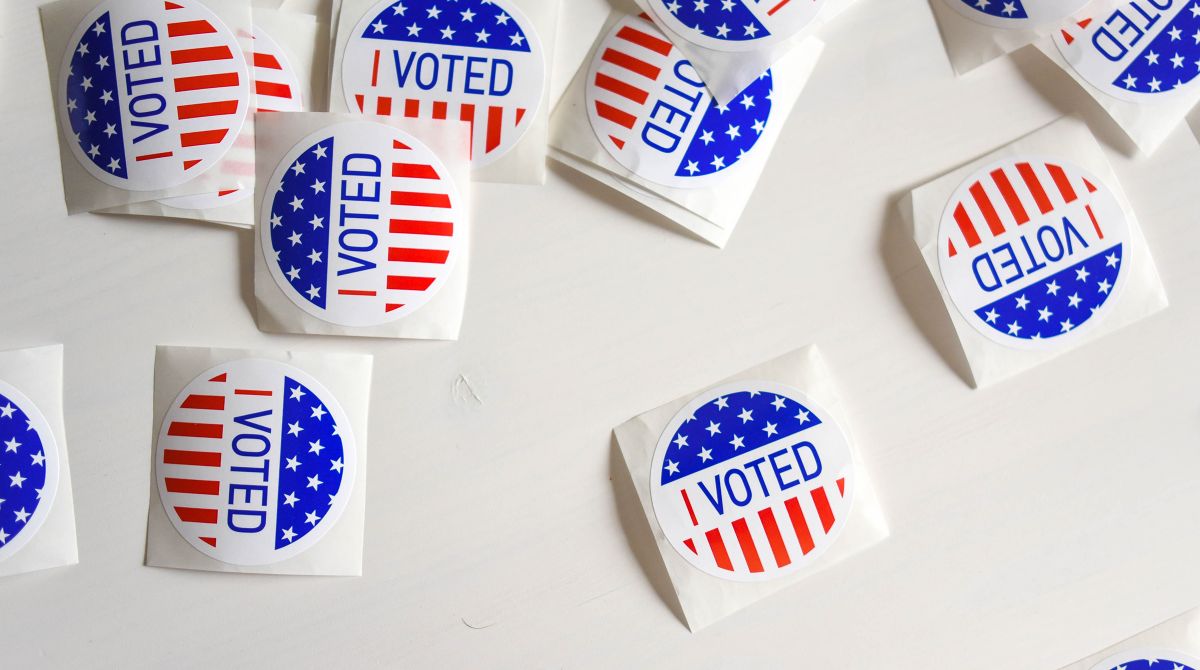Kingston University politics expert examines the impact of the Covid-19 pandemic on the US elections
Posted Thursday 22 July 2021

The Covid-19 pandemic set the scene for a unique electoral cycle in the USA, says senior lecturer in politics Dr Peter Finn. Here he reflects on the historical events of 2020 examined in a co-authored paper.
The 2020 US electoral cycle was like no other. In President Donald Trump and then candidate Joe Biden it featured two politicians representing two distinct, and decidedly different, versions of American politics.
Reflecting his campaign of 2016, Trump was happy to wind up his base with dog-whistling and inaccurate claims, whilst Biden pitched himself as a return to normalcy that would act as an antidote to Trump and his followers. Likewise, key elections were held for both houses of congress and at the state level.
Yet, for all the societal, political, and historical importance of these divisions and elections, it is the fact that the 2020 US electoral cycle occurred while the Covid-19 pandemic was unfolding that made it truly unique, at least in the last 100 years. Rather than two separate phenomena, the US electoral cycle and the Covid-19 pandemic became intertwined, leading to procedural and political responses to the pandemic both by candidates and by officials tasked with running elections.
As I documented in a recent briefing paper, co-written with Dr Robert Ledger, lecturer at Frankfurt Goethe University, and MA Human Rights graduate from Kingston University, Madison Imiola, now a civil rights investigator at the Washington State Human Rights Commission, these procedural and political responses were split into three phases that reflect the US election calendar.
From March 2020, state officials were tasked with running primary elections in the pandemic's early stages. Often, this led to contested and interrelated logistical challenges, legal disputes, and delayed results.
Next, the Democrat and Republican parties adapted their conventions to be mainly online events in August. The conventions were followed by presidential and vice presidential debates in September and October. The debates themselves were interrupted by a positive Covid-19 test for President Donald Trump.
Finally, the November general election saw Democrat Joe Biden win the presidency. Reflecting the primaries, the general election saw contested and delayed results and legal challenges. Trump, and those associated and aligned with him, unsuccessfully contested the presidential election result, in large-part by challenging the legitimacy of mail-in voting driven by Covid-19.
The continual questioning of Biden's victory culminated in the attack on the US Capitol on January 6 2021.
Looking forward, the impact of both the pandemic and the 2020 US elections cycle are likely to be far reaching. As of early July 2021, the US has suffered more than 600,000 deaths from Covid-19, with confirmed cases above 33 million.
Meanwhile, Joe Biden, backed by slender congressional majorities, is pumping large amounts of cash into the US economy to counter the economic impact of the pandemic. Both the health impacts of the pandemic and the spending of the Biden administration will be important, and highly contested issues, as US political attention turns to the 2022 midterms.
Contact us
General enquiries:
Journalists only:
- Communications team
Tel: +44 (0)20 8417 3034
Email us



